- and help prevent dementia, depression, and impairment of your cognitive skills
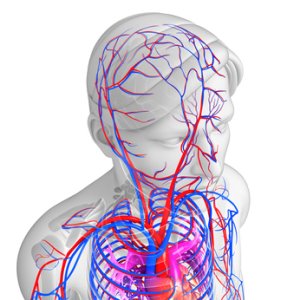 People with elevated levels of omega-3 fatty acids in their blood have better circulation in those parts of the brain that handle learning, language, memory, and other cognitive functions, according to a recent report that is published in the Journal of Alzheimer’s Disease. The scientists also observed a link between blood levels of omega-3 and the rate of dementia and depression. They call their study an important discovery that supports earlier studies, which have shown how simple dietary adjustments such as increasing your intake of oily fish or fish oil supplements help preserve mental skills and a healthy mind.
People with elevated levels of omega-3 fatty acids in their blood have better circulation in those parts of the brain that handle learning, language, memory, and other cognitive functions, according to a recent report that is published in the Journal of Alzheimer’s Disease. The scientists also observed a link between blood levels of omega-3 and the rate of dementia and depression. They call their study an important discovery that supports earlier studies, which have shown how simple dietary adjustments such as increasing your intake of oily fish or fish oil supplements help preserve mental skills and a healthy mind.
– whereas the often scolded cholesterol is good for you
 Cardiovascular diseases account for more deaths than anything else. Still, there is a lot of discussion about the diet and its impact on cardiovascular health, typically when it comes to the question of avoiding fat and choosing margarine instead of butter. A team of Czech scientists decided to study diet habits among different populations and compare these with the risk of cardiovascular disease and premature death. Their study shows that there is no need to be afraid of cholesterol. In fact, the official dietary guidelines could easily do with an adjustment. At the same time, it is important to reduce our intake of carbohydrates and omega-6 fatty acids that are the real culprits. Finally, it is essential to increase the intake of omega-3.
Cardiovascular diseases account for more deaths than anything else. Still, there is a lot of discussion about the diet and its impact on cardiovascular health, typically when it comes to the question of avoiding fat and choosing margarine instead of butter. A team of Czech scientists decided to study diet habits among different populations and compare these with the risk of cardiovascular disease and premature death. Their study shows that there is no need to be afraid of cholesterol. In fact, the official dietary guidelines could easily do with an adjustment. At the same time, it is important to reduce our intake of carbohydrates and omega-6 fatty acids that are the real culprits. Finally, it is essential to increase the intake of omega-3.
 One in nine Danish women gets breast cancer. Diet and lifestyle play a major role, and now an American study shows that omega-3 fatty acids, which are typically found in oily fish and fish oil supplements, may help prevent breast cancer cells from growing and spreading. According to lead investigator Saraswoti Khadge, who is affiliated with the University of Nebraska Medical Center, omega-3 fatty acids support the body’s immune defense and certain anti-inflammatory mechanisms. This study is in line with earlier research, so it may very well be prudent to make sure to get plenty of omega-3 for preventing and treating breast cancer.
One in nine Danish women gets breast cancer. Diet and lifestyle play a major role, and now an American study shows that omega-3 fatty acids, which are typically found in oily fish and fish oil supplements, may help prevent breast cancer cells from growing and spreading. According to lead investigator Saraswoti Khadge, who is affiliated with the University of Nebraska Medical Center, omega-3 fatty acids support the body’s immune defense and certain anti-inflammatory mechanisms. This study is in line with earlier research, so it may very well be prudent to make sure to get plenty of omega-3 for preventing and treating breast cancer.
- intake that also reduces their need for medicine
 An estimated 334 million people worldwide suffer from asthma, which is associated with chronic inflammation. Increased intake of omega-3 fatty acids may help prevent the disease and improve therapies by reducing inflammation in the upper respiratory tract. Also, omega-3 reduces the need for corticosteroids and other types of asthma medicine. In fact, the diet plays a vital role in the development of asthma, and overweight individuals seem to benefit particularly much from an increased omega-3 intake, according to a study that is published in Nutrients. But how much omega-3 does it take to inhibit inflammation, and why are oily fish and fish oil supplements better sources?
An estimated 334 million people worldwide suffer from asthma, which is associated with chronic inflammation. Increased intake of omega-3 fatty acids may help prevent the disease and improve therapies by reducing inflammation in the upper respiratory tract. Also, omega-3 reduces the need for corticosteroids and other types of asthma medicine. In fact, the diet plays a vital role in the development of asthma, and overweight individuals seem to benefit particularly much from an increased omega-3 intake, according to a study that is published in Nutrients. But how much omega-3 does it take to inhibit inflammation, and why are oily fish and fish oil supplements better sources?
 Omega-3and omega-6 fatty acids are vital for our brain function, nervous system, and immune defense but small children get too little of these two essential fatty acids. According to a Canadian study, this increases their risk of chronic inflammation and chronic diseases. The intake of omega-3 from oily fish and shellfish is particularly limited. For children who dislike seafood, a fish oil supplement is worth considering for the sake of their health and development.
Omega-3and omega-6 fatty acids are vital for our brain function, nervous system, and immune defense but small children get too little of these two essential fatty acids. According to a Canadian study, this increases their risk of chronic inflammation and chronic diseases. The intake of omega-3 from oily fish and shellfish is particularly limited. For children who dislike seafood, a fish oil supplement is worth considering for the sake of their health and development.
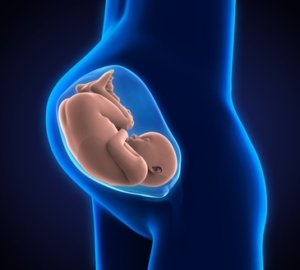 A pregnant woman can support the development of her baby’s brain and vision by consuming oily fish regularly, according to a new Finnish study. Meanwhile, a new Danish study shows that fish oil supplements given to pregnant women give their offspring a better start at life because of their content of omega-3 fatty acids. Unfortunately, the consumption of omega-3 has gone down, and pregnant women are discouraged from eating tuna and other good sources of omega-3, as these fish contain mercury. Health authorities should take this dilemma into account and possibly recommend high-quality supplements of purified fish oil to pregnant women and small children – just like they recommend extra folic acid, iron, and vitamin D. Pregnant vegetarians and vegans should pay careful attention and make sure that their child gets enough omega-3.
A pregnant woman can support the development of her baby’s brain and vision by consuming oily fish regularly, according to a new Finnish study. Meanwhile, a new Danish study shows that fish oil supplements given to pregnant women give their offspring a better start at life because of their content of omega-3 fatty acids. Unfortunately, the consumption of omega-3 has gone down, and pregnant women are discouraged from eating tuna and other good sources of omega-3, as these fish contain mercury. Health authorities should take this dilemma into account and possibly recommend high-quality supplements of purified fish oil to pregnant women and small children – just like they recommend extra folic acid, iron, and vitamin D. Pregnant vegetarians and vegans should pay careful attention and make sure that their child gets enough omega-3.
- and an overlooked deficiency of nutrients for the nervous system
 Far more children are diagnosed with psychiatric disorders today. In the past seven years alone, twice as many cases of ADHD, autism, depression, and fear are diagnosed in Denmark. Communities are under pressure to find teachers, educators, psychologists and other relevant people with the right skills.Another challenge is that most families with children do not follow the official dietary guidelines, and children generally don’t get enough sunshine. Studies reveal that lack of vitamin D, omega-3 fatty acids, B-vitamins, and magnesium increases the risk of psychiatric disorders. These diseases may therefore simply be a consequence of not eating a sufficiently healthy diet.
Far more children are diagnosed with psychiatric disorders today. In the past seven years alone, twice as many cases of ADHD, autism, depression, and fear are diagnosed in Denmark. Communities are under pressure to find teachers, educators, psychologists and other relevant people with the right skills.Another challenge is that most families with children do not follow the official dietary guidelines, and children generally don’t get enough sunshine. Studies reveal that lack of vitamin D, omega-3 fatty acids, B-vitamins, and magnesium increases the risk of psychiatric disorders. These diseases may therefore simply be a consequence of not eating a sufficiently healthy diet.
 Oily fish and fish oil contain the long-chained omega-3 fatty acids, EPA and DHA, that are of vital importance to the brain, the nervous system, and our mental health throughout life. Today, most people on a global scale lack these omega-3 fatty acids because of altered dietary habits, including the use of unnatural animal fodder. Low intake of omega-3 increases the risk of various ailments such as ADHD, autism, depression, borderline personality disorder (BPD), and bipolar disorder. Fish oil supplementation may therefore offer promise as prevention and part of the therapy used to treat a number of these disorders. The problem with modern diets is their disproportionate content of omega-6 at the expense of omega-3, an imbalance that may derail a number of physiological functions of importance to our mental health, according to a review article published in the science journal, Nutrients.
Oily fish and fish oil contain the long-chained omega-3 fatty acids, EPA and DHA, that are of vital importance to the brain, the nervous system, and our mental health throughout life. Today, most people on a global scale lack these omega-3 fatty acids because of altered dietary habits, including the use of unnatural animal fodder. Low intake of omega-3 increases the risk of various ailments such as ADHD, autism, depression, borderline personality disorder (BPD), and bipolar disorder. Fish oil supplementation may therefore offer promise as prevention and part of the therapy used to treat a number of these disorders. The problem with modern diets is their disproportionate content of omega-6 at the expense of omega-3, an imbalance that may derail a number of physiological functions of importance to our mental health, according to a review article published in the science journal, Nutrients.
 Fish oil contains the omega-3 fatty acids, EPA and DHA, which are important for normal development of the baby’s brain and immune defense. Pregnant women who eat oily fish several times a week help their babies against developing asthma later in life. Oily fish and fish oil supplements have similar effects. This was shown in two studies from the University of South Florida in Tampa, USA. However, pregnant women should avoid predatory fish like tuna that contain mercury. For those who dislike the taste of fish or who simply do not eat enough, fish oil supplements are an option.
Fish oil contains the omega-3 fatty acids, EPA and DHA, which are important for normal development of the baby’s brain and immune defense. Pregnant women who eat oily fish several times a week help their babies against developing asthma later in life. Oily fish and fish oil supplements have similar effects. This was shown in two studies from the University of South Florida in Tampa, USA. However, pregnant women should avoid predatory fish like tuna that contain mercury. For those who dislike the taste of fish or who simply do not eat enough, fish oil supplements are an option.
- and being overweight poses a particular risk
 Premature delivery increases the baby’s risk of being born with developmental disturbances or dying within its first months of life. It is commonly known that omega-3 fatty acids are important for normal pregnancy. According to a new and updated Cochrane review article, overweight people are at increased risk of lacking omega-3 fatty acids, and supplementing with omega-3 may lower their risk of giving birth too soon. Although the new study supports earlier research, there was something that surprised the scientists.
Premature delivery increases the baby’s risk of being born with developmental disturbances or dying within its first months of life. It is commonly known that omega-3 fatty acids are important for normal pregnancy. According to a new and updated Cochrane review article, overweight people are at increased risk of lacking omega-3 fatty acids, and supplementing with omega-3 may lower their risk of giving birth too soon. Although the new study supports earlier research, there was something that surprised the scientists.
- and help prevent atherosclerosis
 On a global scale, atherosclerosis is the leading cause of death due to heart failure or stroke. Atherosclerosis causes symptoms such as breathing difficulty, calf pain,impotence, and poor memory as a result of organs and tissues not getting enough blood and oxygen. Because the condition develops slowly and many people are not even aware of its presence before it is too late, early prevention is vital. According to a study that is published in the science journal Circulation, four grams of fish oil daily can lower levels of triglycerides, a blood lipid that is considered to be more harmful than cholesterol. It is also important to address the indirect causes of elevated triglyceride levels such as overweight, metabolic syndrome and type 2 diabetes. Consuming too many carbohydrates may even cause fatty liver and result in excess triglyceride production. On the other hand, triglycerides also have health properties, which we will take a closer look at for clarity.
On a global scale, atherosclerosis is the leading cause of death due to heart failure or stroke. Atherosclerosis causes symptoms such as breathing difficulty, calf pain,impotence, and poor memory as a result of organs and tissues not getting enough blood and oxygen. Because the condition develops slowly and many people are not even aware of its presence before it is too late, early prevention is vital. According to a study that is published in the science journal Circulation, four grams of fish oil daily can lower levels of triglycerides, a blood lipid that is considered to be more harmful than cholesterol. It is also important to address the indirect causes of elevated triglyceride levels such as overweight, metabolic syndrome and type 2 diabetes. Consuming too many carbohydrates may even cause fatty liver and result in excess triglyceride production. On the other hand, triglycerides also have health properties, which we will take a closer look at for clarity.
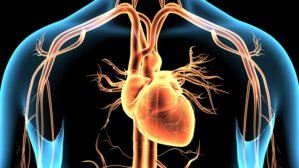 On a global scale, cardiovascular disease and coronary occlusion cause more deaths than any other factor. However, according to a large meta-analysis from Harvard T. H. Chan School of Public Health and Brigham and Women’s Hospital in Boston, USA, people who take fish oil have a lower risk of atherosclerosis and cardiac failure than those, who do not take the supplements. The study also revealed that high-dosed fish oil supplementation delivers more health benefits than the lower doses. Atherosclerosis develops gradually, and millions of people die every year because of this problem, which means that even minor changes such as taking supplements and eating a healthier diet, can improve quality of life and prevent many deaths. So, according to the new study, how much fish oil is needed in order to obtain the optimal cardiovascular effect?
On a global scale, cardiovascular disease and coronary occlusion cause more deaths than any other factor. However, according to a large meta-analysis from Harvard T. H. Chan School of Public Health and Brigham and Women’s Hospital in Boston, USA, people who take fish oil have a lower risk of atherosclerosis and cardiac failure than those, who do not take the supplements. The study also revealed that high-dosed fish oil supplementation delivers more health benefits than the lower doses. Atherosclerosis develops gradually, and millions of people die every year because of this problem, which means that even minor changes such as taking supplements and eating a healthier diet, can improve quality of life and prevent many deaths. So, according to the new study, how much fish oil is needed in order to obtain the optimal cardiovascular effect?
 The human brain needs omega-3 fatty acids, and according to a study from the University of Massachusetts Lowell in the US, something as simple as a fish oil supplement can help reduce disruptive and violent behavior, a growing problem among children and teenagers. Pedagogical and psychological approaches are not the only solution to stressed and externalizing behavior. It is every bit as important to look at the children’s nutritional status.
The human brain needs omega-3 fatty acids, and according to a study from the University of Massachusetts Lowell in the US, something as simple as a fish oil supplement can help reduce disruptive and violent behavior, a growing problem among children and teenagers. Pedagogical and psychological approaches are not the only solution to stressed and externalizing behavior. It is every bit as important to look at the children’s nutritional status.
 Heart failure affects millions of people worldwide and many die within the first year of being hospitalized with acute heart failure. However, eating a diet that is rich in the omega-3 fatty acid EPA from oily fish and ALA from plant foods such as walnuts is linked to a lower risk of blood clots and early death, according to a new study that is published in Journal of the American College of Cardiology. You can also read more about another compound that improves cardiac function and survival after acute heart failure.
Heart failure affects millions of people worldwide and many die within the first year of being hospitalized with acute heart failure. However, eating a diet that is rich in the omega-3 fatty acid EPA from oily fish and ALA from plant foods such as walnuts is linked to a lower risk of blood clots and early death, according to a new study that is published in Journal of the American College of Cardiology. You can also read more about another compound that improves cardiac function and survival after acute heart failure.
 If you consume too much red meat it may increase your risk of colon cancer, but is there meat with the opposite effect? According to a new and groundbreaking study, eating salmon or other good sources of omega-3 fatty acids appears to help prevent this rather common cancer form and possibly even other cancers, as well. Just make sure not to get too much omega-6, especially from margarine and other plant oils, as it is vital to have the correct balance between the two types of fatty acids.
If you consume too much red meat it may increase your risk of colon cancer, but is there meat with the opposite effect? According to a new and groundbreaking study, eating salmon or other good sources of omega-3 fatty acids appears to help prevent this rather common cancer form and possibly even other cancers, as well. Just make sure not to get too much omega-6, especially from margarine and other plant oils, as it is vital to have the correct balance between the two types of fatty acids.
 As we grow older, our risk of hearing loss increases, and our diet plays a major role. Apparently, there is a link between hearing loss and being deficient in an omega-3 fatty acid that we get from oily fish and fish oil supplements. This was seen in a study that was presented in Boston at a meeting for the American Society for Nutrition – an American company for professional researchers and practitioners in nutrition. The scientists mention that increased intake of this particular omega-3 fatty acid from the diet or from supplements may help prevent hearing loss.
As we grow older, our risk of hearing loss increases, and our diet plays a major role. Apparently, there is a link between hearing loss and being deficient in an omega-3 fatty acid that we get from oily fish and fish oil supplements. This was seen in a study that was presented in Boston at a meeting for the American Society for Nutrition – an American company for professional researchers and practitioners in nutrition. The scientists mention that increased intake of this particular omega-3 fatty acid from the diet or from supplements may help prevent hearing loss.
 According to a new English study, increased intake of omega-3 fatty acids during the childhood years may lower your risk of developing asthma later in life but only if you have a specific gene variation. In addition, a previous Australian study reports that lower blood levels of omega-3 fatty acids in adults is associated with poorer asthma control. Diet generally seems to play a major role in the development of the disease and overweight individuals appear to benefit more than others from increasing their omega-3 intake. The big question is how much do they need to take?
According to a new English study, increased intake of omega-3 fatty acids during the childhood years may lower your risk of developing asthma later in life but only if you have a specific gene variation. In addition, a previous Australian study reports that lower blood levels of omega-3 fatty acids in adults is associated with poorer asthma control. Diet generally seems to play a major role in the development of the disease and overweight individuals appear to benefit more than others from increasing their omega-3 intake. The big question is how much do they need to take?
 People who suffer from dry eyes have reduced tear production. The condition has become increasingly common because of all the hours we spend staring at screens from devices like smartphones, computers, tablets etc. Dry eyes are irritated, and the problem may cause damage to both your eyes and eyesight. However, a team of scientists from the Hokkaido University in Japan has demonstrated that healthy fats such as omega-3 are able to protect the eyes and repair damage. You can also find other useful tips on natural ways to prevent and treat dry eyes.
People who suffer from dry eyes have reduced tear production. The condition has become increasingly common because of all the hours we spend staring at screens from devices like smartphones, computers, tablets etc. Dry eyes are irritated, and the problem may cause damage to both your eyes and eyesight. However, a team of scientists from the Hokkaido University in Japan has demonstrated that healthy fats such as omega-3 are able to protect the eyes and repair damage. You can also find other useful tips on natural ways to prevent and treat dry eyes.
 Fish is good source of omega-3 fatty acids and other nutrients that are important for normal development of the fetus. Still, there has been a lot of discussion about whether or not pregnant women should eat fish, as this is also a source of mercury and other environmental toxins. A whole new study shows that pregnant women who eat moderate amounts of fish tend to give birth to children with a lower risk of diabetes and overweight later in life compared with women that eat very little fish or none at all. Beware that fish often contains mercury but it also contains selenium, which has a protective effect.
Fish is good source of omega-3 fatty acids and other nutrients that are important for normal development of the fetus. Still, there has been a lot of discussion about whether or not pregnant women should eat fish, as this is also a source of mercury and other environmental toxins. A whole new study shows that pregnant women who eat moderate amounts of fish tend to give birth to children with a lower risk of diabetes and overweight later in life compared with women that eat very little fish or none at all. Beware that fish often contains mercury but it also contains selenium, which has a protective effect.
- but fish oil helps as prevention
 Breast cancer is the number one cause of cancer-related deaths among women worldwide. The diet has huge importance and according to a new Polish study, eating more fish with omega-3 fatty acids may help lower the risk of developing the disease. The study supports earlier research by showing that in order to prevent breast cancer, it is vital to consume plenty of omega-3. The best sources of these essential fatty acids are oily fish and fish oil supplements. The preventive effect of omega-3 is increased additionally if you also get plenty of vitamin D and selenium.
Breast cancer is the number one cause of cancer-related deaths among women worldwide. The diet has huge importance and according to a new Polish study, eating more fish with omega-3 fatty acids may help lower the risk of developing the disease. The study supports earlier research by showing that in order to prevent breast cancer, it is vital to consume plenty of omega-3. The best sources of these essential fatty acids are oily fish and fish oil supplements. The preventive effect of omega-3 is increased additionally if you also get plenty of vitamin D and selenium.
- while omega-6 can aggravate the disease
 Omega-3 and omega-6 fatty acids in our diet have opposite effects on the severity of asthma in vulnerable children. Omega-3 appears to reduce the severity of asthma symptoms, while omega-6 seems to make the symptoms worse, according to an article published in the American Journal of Respiratory and Clinical Care Medicine. The problem with modern diets is that they tend to contain far too little omega-3 and far too much omega-6. However, this is something one can correct with help from dietary changes and fish oil supplements.
Omega-3 and omega-6 fatty acids in our diet have opposite effects on the severity of asthma in vulnerable children. Omega-3 appears to reduce the severity of asthma symptoms, while omega-6 seems to make the symptoms worse, according to an article published in the American Journal of Respiratory and Clinical Care Medicine. The problem with modern diets is that they tend to contain far too little omega-3 and far too much omega-6. However, this is something one can correct with help from dietary changes and fish oil supplements.
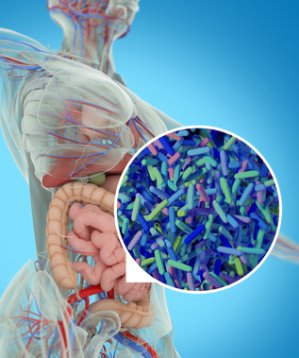 More and more studies show how important our digestion and gut flora are for our health and mood. A new study published in Scientific Reports reveals that omega-3 fatty acids are able to influence positively the diversity of our gut flora.
More and more studies show how important our digestion and gut flora are for our health and mood. A new study published in Scientific Reports reveals that omega-3 fatty acids are able to influence positively the diversity of our gut flora.
 British scientists have tested whether omega-3 fatty acids from fish oil supplements have a pain-relieving effect on patients with rheumatoid arthritis. As it turns out, consuming fish oils with large quantities of EPA and DHA has the best effect, so make sure to read the label to see how much of the two omega-3 fatty acids your supplement contains. Rheumatoid arthritis and other rheumatic diseases are a result of joint inflammation, so it may also pay off to look into the benefits of an anti-inflammatory diet.
British scientists have tested whether omega-3 fatty acids from fish oil supplements have a pain-relieving effect on patients with rheumatoid arthritis. As it turns out, consuming fish oils with large quantities of EPA and DHA has the best effect, so make sure to read the label to see how much of the two omega-3 fatty acids your supplement contains. Rheumatoid arthritis and other rheumatic diseases are a result of joint inflammation, so it may also pay off to look into the benefits of an anti-inflammatory diet.
 Schizophrenia is a serious psychotic condition with delusions and hallucinations, which can be very taxing for the sufferer as well as for the rest of the family. Most people experience a slow and gradual worsening of the brain ailment, and the disease may even spread to other organs. On average, people who suffer from schizophrenia die 10 years earlier than the general population, which is why it is vital to prevent the disease or ameliorate its symptoms. Scientists have discovered that supplementing with omega-3 fatty acids has a positive effect for several reasons.
Schizophrenia is a serious psychotic condition with delusions and hallucinations, which can be very taxing for the sufferer as well as for the rest of the family. Most people experience a slow and gradual worsening of the brain ailment, and the disease may even spread to other organs. On average, people who suffer from schizophrenia die 10 years earlier than the general population, which is why it is vital to prevent the disease or ameliorate its symptoms. Scientists have discovered that supplementing with omega-3 fatty acids has a positive effect for several reasons.
 Everyone has the desire to stay as youthful as possible, to be healthy, and to be able to enjoy senior life with good cognitive functioning and the ability to remain physically active. Of course, this requires that we take good care of ourselves, and a healthy diet is extremely important. It turns out that having high blood levels of omega-3 fatty acids, which we primarily get from oily fish, is linked to a better chance of healthy aging and a longer life. There is a big difference between omega-3 fatty acids from animal sources and plant sources, according to a large population study that is published in the British Medical Journal.
Everyone has the desire to stay as youthful as possible, to be healthy, and to be able to enjoy senior life with good cognitive functioning and the ability to remain physically active. Of course, this requires that we take good care of ourselves, and a healthy diet is extremely important. It turns out that having high blood levels of omega-3 fatty acids, which we primarily get from oily fish, is linked to a better chance of healthy aging and a longer life. There is a big difference between omega-3 fatty acids from animal sources and plant sources, according to a large population study that is published in the British Medical Journal.
 Premature infants have a higher risk of development disturbances. On a global scale, preterm delivery is the leading cause of death among children younger than five years of age. Pregnant women, who increase their intake of omega-3 fatty acidsby taking supplements of fish oil, are able to lower their risk of preterm delivery, according to a new Cochrane review article. Earlier studies show that increased intake of oily fish can also lower the risk of preterm delivery, but it is important that the expecting mother avoids eating predatory fish such as tuna and other types of fish that are likely to contain too much mercury.
Premature infants have a higher risk of development disturbances. On a global scale, preterm delivery is the leading cause of death among children younger than five years of age. Pregnant women, who increase their intake of omega-3 fatty acidsby taking supplements of fish oil, are able to lower their risk of preterm delivery, according to a new Cochrane review article. Earlier studies show that increased intake of oily fish can also lower the risk of preterm delivery, but it is important that the expecting mother avoids eating predatory fish such as tuna and other types of fish that are likely to contain too much mercury.
 According to a study from Ohio State University, Columbus, USA, people suffering from dry eyes may find relief by consuming more oily fish or taking a fish oil supplement.
According to a study from Ohio State University, Columbus, USA, people suffering from dry eyes may find relief by consuming more oily fish or taking a fish oil supplement.
- and improve their cognition and motor skills
 According to a large meta-analysis, supplementing with omega-3 fatty acids has a positive effect on children by improving their vision, their cognition, and their motor skills. Unfortunately, modern diets provide far too little omega-3. For that reason, health authorities should consider recommending supplements of purified fish oil for pregnant women and children, just like they recommend folic acid, iron, and vitamin D.
According to a large meta-analysis, supplementing with omega-3 fatty acids has a positive effect on children by improving their vision, their cognition, and their motor skills. Unfortunately, modern diets provide far too little omega-3. For that reason, health authorities should consider recommending supplements of purified fish oil for pregnant women and children, just like they recommend folic acid, iron, and vitamin D.
– but what about the mercury? – but what about the mercury?
 Oily fish is a great source of the essential omega-3 fatty acids, EPA and DHA, which are important for the development of the brain and nervous system of the unborn child. Pregnant women with low levels of these two omega-3 fatty acids have a statistically significant increased risk of preterm delivery compared with pregnant women who have high levels of EPA and DHA in their blood. This was shown in a study from SSI in Copenhagen, carried out in collaboration with Harvard T.H. Chan School of Public Health in Boston, the United States. The problem is that many women are afraid to eat oily fish during their pregnancy because of the risk of mercury poisoning. So which fish are the safest for consumption – and what about fish oil supplements?
Oily fish is a great source of the essential omega-3 fatty acids, EPA and DHA, which are important for the development of the brain and nervous system of the unborn child. Pregnant women with low levels of these two omega-3 fatty acids have a statistically significant increased risk of preterm delivery compared with pregnant women who have high levels of EPA and DHA in their blood. This was shown in a study from SSI in Copenhagen, carried out in collaboration with Harvard T.H. Chan School of Public Health in Boston, the United States. The problem is that many women are afraid to eat oily fish during their pregnancy because of the risk of mercury poisoning. So which fish are the safest for consumption – and what about fish oil supplements?
- and the huge difference between the omega-3 forms ALA, EPA, and DHA
 Most people lack omega-3 fatty acids acids that are vital for the brain, the nervous system, and the cardiovascular system. Omega-3 fatty acids also have anti-inflammatory and cancer-fighting properties. It is important to consume omega-3 and omega-6 fatty acids in the right balance in order to benefit from their many health effects. But how do we make sure to get enough omega-3 fatty acids that we can utilize? And what is the difference between ALA, EPA, and DHA?
Most people lack omega-3 fatty acids acids that are vital for the brain, the nervous system, and the cardiovascular system. Omega-3 fatty acids also have anti-inflammatory and cancer-fighting properties. It is important to consume omega-3 and omega-6 fatty acids in the right balance in order to benefit from their many health effects. But how do we make sure to get enough omega-3 fatty acids that we can utilize? And what is the difference between ALA, EPA, and DHA?
 It is well-known that omega-3fatty acids counteract inflammation, which is the common thread in most chronic diseases. A team of scientists from Tufts University in the United States has now discovered that the omega-3 fatty acids, EPA and DHA, which we get from oily fish and fish oil supplements have different anti-inflammatory mechanisms. Their study is published in the science journal Atherosclerosis and supports earlier studies that have shown how important omega-3 is for preventing circulatory diseases, rheumatism, and other lifestyle diseases.
It is well-known that omega-3fatty acids counteract inflammation, which is the common thread in most chronic diseases. A team of scientists from Tufts University in the United States has now discovered that the omega-3 fatty acids, EPA and DHA, which we get from oily fish and fish oil supplements have different anti-inflammatory mechanisms. Their study is published in the science journal Atherosclerosis and supports earlier studies that have shown how important omega-3 is for preventing circulatory diseases, rheumatism, and other lifestyle diseases.
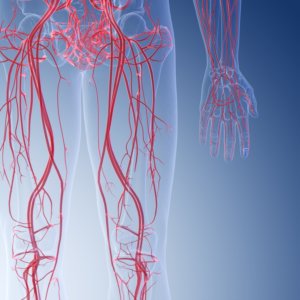 Peripheral circulatory disorders are primarily caused by clogged blood vessels in the extremities. Symptoms typically include walking-induced leg pain, cold hands and feet, or impotence caused by a poor blood supply. According to a new study that is published in the science journal Lipids, people with peripheral circulatory disorders have lower levels of omega-3 in their blood compared with people who do not suffer from these diseases. Omega-3 is believed to have several mechanisms that protect against atherosclerosis. It is also important to make sure to consume omega-3 in the right balance with omega-6.
Peripheral circulatory disorders are primarily caused by clogged blood vessels in the extremities. Symptoms typically include walking-induced leg pain, cold hands and feet, or impotence caused by a poor blood supply. According to a new study that is published in the science journal Lipids, people with peripheral circulatory disorders have lower levels of omega-3 in their blood compared with people who do not suffer from these diseases. Omega-3 is believed to have several mechanisms that protect against atherosclerosis. It is also important to make sure to consume omega-3 in the right balance with omega-6.
 People in the Western part of the world consume far too much omega-6, primarily in the form of linoleic acid from vegetable oils and processed foods such as margarine, fries, chips, and ready meals. A new study that is published in The Journal of Physiology shows that this may be harmful during pregnancy and can increase the risk of complications and developmental disorders in the baby.
People in the Western part of the world consume far too much omega-6, primarily in the form of linoleic acid from vegetable oils and processed foods such as margarine, fries, chips, and ready meals. A new study that is published in The Journal of Physiology shows that this may be harmful during pregnancy and can increase the risk of complications and developmental disorders in the baby.
Earlier studies show that consuming too much omega-6 increases the risk of inflammation and cardiovascular disease. And it is essential to balance your intake of omega-3 and omega-6, whether you are pregnant or not.
 Recent studies reveal that vitamin D and omega-3 fatty acids are able to prevent and ameliorate a number of neurological ailments such as depression, ADHD, bipolar disorder, autism, and schizophrenia. There is evidence suggesting that vitamin D and omega-3 fatty acids work by controlling the synthesis of serotonin in the brain. The listed neurological conditions are all characterized by defects in the body’s synthesis of this important neurotransmitter. It is therefore vital to get plenty of sunshine, vitamin D, and omega-3 fatty acids, as widespread deficiencies in all three most likely contribute to the increasing rate of different neurological disorders.
Recent studies reveal that vitamin D and omega-3 fatty acids are able to prevent and ameliorate a number of neurological ailments such as depression, ADHD, bipolar disorder, autism, and schizophrenia. There is evidence suggesting that vitamin D and omega-3 fatty acids work by controlling the synthesis of serotonin in the brain. The listed neurological conditions are all characterized by defects in the body’s synthesis of this important neurotransmitter. It is therefore vital to get plenty of sunshine, vitamin D, and omega-3 fatty acids, as widespread deficiencies in all three most likely contribute to the increasing rate of different neurological disorders.
 Years of scaremongering against fat has had the unfortunate consequence that many women get too few essential fats in their diet, such as the omega 3 fatty acids EPA and DHA. Since we humans are unable to produce them in the body, we rely on a steady supply from our diet. This makes them just as important as vitamins and minerals.
Years of scaremongering against fat has had the unfortunate consequence that many women get too few essential fats in their diet, such as the omega 3 fatty acids EPA and DHA. Since we humans are unable to produce them in the body, we rely on a steady supply from our diet. This makes them just as important as vitamins and minerals.
 People with elevated levels of omega-3 fatty acids in their blood have better circulation in those parts of the brain that handle learning, language, memory, and other cognitive functions, according to a recent report that is published in the Journal of Alzheimer’s Disease. The scientists also observed a link between blood levels of omega-3 and the rate of dementia and depression. They call their study an important discovery that supports earlier studies, which have shown how simple dietary adjustments such as increasing your intake of oily fish or fish oil supplements help preserve mental skills and a healthy mind.
People with elevated levels of omega-3 fatty acids in their blood have better circulation in those parts of the brain that handle learning, language, memory, and other cognitive functions, according to a recent report that is published in the Journal of Alzheimer’s Disease. The scientists also observed a link between blood levels of omega-3 and the rate of dementia and depression. They call their study an important discovery that supports earlier studies, which have shown how simple dietary adjustments such as increasing your intake of oily fish or fish oil supplements help preserve mental skills and a healthy mind.











 Cardiovascular diseases account for more deaths than anything else. Still, there is a lot of discussion about the diet and its impact on cardiovascular health, typically when it comes to the question of avoiding fat and choosing margarine instead of butter. A team of Czech scientists decided to study diet habits among different populations and compare these with the risk of cardiovascular disease and premature death. Their study shows that there is no need to be afraid of cholesterol. In fact, the official dietary guidelines could easily do with an adjustment. At the same time, it is important to reduce our intake of carbohydrates and omega-6 fatty acids that are the real culprits. Finally, it is essential to increase the intake of omega-3.
Cardiovascular diseases account for more deaths than anything else. Still, there is a lot of discussion about the diet and its impact on cardiovascular health, typically when it comes to the question of avoiding fat and choosing margarine instead of butter. A team of Czech scientists decided to study diet habits among different populations and compare these with the risk of cardiovascular disease and premature death. Their study shows that there is no need to be afraid of cholesterol. In fact, the official dietary guidelines could easily do with an adjustment. At the same time, it is important to reduce our intake of carbohydrates and omega-6 fatty acids that are the real culprits. Finally, it is essential to increase the intake of omega-3. One in nine Danish women gets breast cancer. Diet and lifestyle play a major role, and now an American study shows that
One in nine Danish women gets breast cancer. Diet and lifestyle play a major role, and now an American study shows that  An estimated 334 million people worldwide suffer from asthma, which is associated with chronic inflammation. Increased intake of
An estimated 334 million people worldwide suffer from asthma, which is associated with chronic inflammation. Increased intake of 
 A pregnant woman can support the development of her baby’s brain and vision by consuming oily fish regularly, according to a new Finnish study. Meanwhile, a new Danish study shows that fish oil supplements given to pregnant women give their offspring a better start at life because of their content of
A pregnant woman can support the development of her baby’s brain and vision by consuming oily fish regularly, according to a new Finnish study. Meanwhile, a new Danish study shows that fish oil supplements given to pregnant women give their offspring a better start at life because of their content of  Far more children are diagnosed with psychiatric disorders today. In the past seven years alone, twice as many cases of ADHD, autism, depression, and fear are diagnosed in Denmark. Communities are under pressure to find teachers, educators, psychologists and other relevant people with the right skills.
Far more children are diagnosed with psychiatric disorders today. In the past seven years alone, twice as many cases of ADHD, autism, depression, and fear are diagnosed in Denmark. Communities are under pressure to find teachers, educators, psychologists and other relevant people with the right skills. Oily fish and fish oil contain the long-chained omega-3 fatty acids, EPA and DHA, that are of vital importance to the brain, the nervous system, and our mental health throughout life. Today, most people on a global scale lack these omega-3 fatty acids because of altered dietary habits, including the use of unnatural animal fodder. Low intake of omega-3 increases the risk of various ailments such as ADHD, autism, depression, borderline personality disorder (BPD), and bipolar disorder. Fish oil supplementation may therefore offer promise as prevention and part of the therapy used to treat a number of these disorders. The problem with modern diets is their disproportionate content of omega-6 at the expense of omega-3, an imbalance that may derail a number of physiological functions of importance to our mental health, according to a review article published in the science journal, Nutrients.
Oily fish and fish oil contain the long-chained omega-3 fatty acids, EPA and DHA, that are of vital importance to the brain, the nervous system, and our mental health throughout life. Today, most people on a global scale lack these omega-3 fatty acids because of altered dietary habits, including the use of unnatural animal fodder. Low intake of omega-3 increases the risk of various ailments such as ADHD, autism, depression, borderline personality disorder (BPD), and bipolar disorder. Fish oil supplementation may therefore offer promise as prevention and part of the therapy used to treat a number of these disorders. The problem with modern diets is their disproportionate content of omega-6 at the expense of omega-3, an imbalance that may derail a number of physiological functions of importance to our mental health, according to a review article published in the science journal, Nutrients. Fish oil contains the omega-3 fatty acids, EPA and DHA, which are important for normal development of the baby’s brain and immune defense. Pregnant women who eat oily fish several times a week help their babies against developing asthma later in life. Oily fish and fish oil supplements have similar effects. This was shown in two studies from the University of South Florida in Tampa, USA. However, pregnant women should avoid predatory fish like tuna that contain mercury. For those who dislike the taste of fish or who simply do not eat enough, fish oil supplements are an option.
Fish oil contains the omega-3 fatty acids, EPA and DHA, which are important for normal development of the baby’s brain and immune defense. Pregnant women who eat oily fish several times a week help their babies against developing asthma later in life. Oily fish and fish oil supplements have similar effects. This was shown in two studies from the University of South Florida in Tampa, USA. However, pregnant women should avoid predatory fish like tuna that contain mercury. For those who dislike the taste of fish or who simply do not eat enough, fish oil supplements are an option. Premature delivery increases the baby’s risk of being born with developmental disturbances or dying within its first months of life. It is commonly known that
Premature delivery increases the baby’s risk of being born with developmental disturbances or dying within its first months of life. It is commonly known that  On a global scale, atherosclerosis is the leading cause of death due to heart failure or stroke. Atherosclerosis causes symptoms such as breathing difficulty, calf pain,
On a global scale, atherosclerosis is the leading cause of death due to heart failure or stroke. Atherosclerosis causes symptoms such as breathing difficulty, calf pain, On a global scale, cardiovascular disease and coronary occlusion cause more deaths than any other factor. However, according to a large meta-analysis from Harvard T. H. Chan School of Public Health and Brigham and Women’s Hospital in Boston, USA, people who take
On a global scale, cardiovascular disease and coronary occlusion cause more deaths than any other factor. However, according to a large meta-analysis from Harvard T. H. Chan School of Public Health and Brigham and Women’s Hospital in Boston, USA, people who take  The human brain needs
The human brain needs  Heart failure affects millions of people worldwide and many die within the first year of being hospitalized with acute heart failure. However, eating a diet that is rich in the omega-3 fatty acid EPA from oily fish and ALA from plant foods such as walnuts is linked to a lower risk of blood clots and early death, according to a new study that is published in Journal of the American College of Cardiology. You can also read more about another compound that improves cardiac function and survival after acute heart failure.
Heart failure affects millions of people worldwide and many die within the first year of being hospitalized with acute heart failure. However, eating a diet that is rich in the omega-3 fatty acid EPA from oily fish and ALA from plant foods such as walnuts is linked to a lower risk of blood clots and early death, according to a new study that is published in Journal of the American College of Cardiology. You can also read more about another compound that improves cardiac function and survival after acute heart failure. If you consume too much red meat it may increase your risk of colon cancer, but is there meat with the opposite effect? According to a new and groundbreaking study, eating salmon or other good sources of
If you consume too much red meat it may increase your risk of colon cancer, but is there meat with the opposite effect? According to a new and groundbreaking study, eating salmon or other good sources of 
 According to a new English study, increased intake of
According to a new English study, increased intake of  People who suffer from dry eyes have reduced tear production. The condition has become increasingly common because of all the hours we spend staring at screens from devices like smartphones, computers, tablets etc. Dry eyes are irritated, and the problem may cause damage to both your eyes and eyesight. However, a team of scientists from the Hokkaido University in Japan has demonstrated that healthy fats such as
People who suffer from dry eyes have reduced tear production. The condition has become increasingly common because of all the hours we spend staring at screens from devices like smartphones, computers, tablets etc. Dry eyes are irritated, and the problem may cause damage to both your eyes and eyesight. However, a team of scientists from the Hokkaido University in Japan has demonstrated that healthy fats such as  Fish is good source of
Fish is good source of  Breast cancer is the number one cause of cancer-related deaths among women worldwide. The diet has huge importance and according to a new Polish study, eating more fish with
Breast cancer is the number one cause of cancer-related deaths among women worldwide. The diet has huge importance and according to a new Polish study, eating more fish with 
 More and more studies show how important our digestion and gut flora are for our health and mood. A new study published in Scientific Reports reveals that
More and more studies show how important our digestion and gut flora are for our health and mood. A new study published in Scientific Reports reveals that  British scientists have tested whether
British scientists have tested whether  Schizophrenia is a serious psychotic condition with delusions and hallucinations, which can be very taxing for the sufferer as well as for the rest of the family. Most people experience a slow and gradual worsening of the brain ailment, and the disease may even spread to other organs. On average, people who suffer from schizophrenia die 10 years earlier than the general population, which is why it is vital to prevent the disease or ameliorate its symptoms. Scientists have discovered that supplementing with
Schizophrenia is a serious psychotic condition with delusions and hallucinations, which can be very taxing for the sufferer as well as for the rest of the family. Most people experience a slow and gradual worsening of the brain ailment, and the disease may even spread to other organs. On average, people who suffer from schizophrenia die 10 years earlier than the general population, which is why it is vital to prevent the disease or ameliorate its symptoms. Scientists have discovered that supplementing with  Everyone has the desire to stay as youthful as possible, to be healthy, and to be able to enjoy senior life with good cognitive functioning and the ability to remain physically active. Of course, this requires that we take good care of ourselves, and a healthy diet is extremely important. It turns out that having high blood levels of
Everyone has the desire to stay as youthful as possible, to be healthy, and to be able to enjoy senior life with good cognitive functioning and the ability to remain physically active. Of course, this requires that we take good care of ourselves, and a healthy diet is extremely important. It turns out that having high blood levels of  Premature infants have a higher risk of development disturbances. On a global scale, preterm delivery is the leading cause of death among children younger than five years of age. Pregnant women, who increase their intake of
Premature infants have a higher risk of development disturbances. On a global scale, preterm delivery is the leading cause of death among children younger than five years of age. Pregnant women, who increase their intake of  According to a study from Ohio State University, Columbus, USA, people suffering from dry eyes may find relief by consuming more oily fish or taking a fish oil supplement.
According to a study from Ohio State University, Columbus, USA, people suffering from dry eyes may find relief by consuming more oily fish or taking a fish oil supplement. According to a large meta-analysis, supplementing with
According to a large meta-analysis, supplementing with  Oily fish is a great source of the essential omega-3 fatty acids, EPA and DHA, which are important for the development of the brain and nervous system of the unborn child. Pregnant women with low levels of these two omega-3 fatty acids have a statistically significant increased risk of preterm delivery compared with pregnant women who have high levels of EPA and DHA in their blood. This was shown in a study from SSI in Copenhagen, carried out in collaboration with Harvard T.H. Chan School of Public Health in Boston, the United States. The problem is that many women are afraid to eat oily fish during their pregnancy because of the risk of mercury poisoning. So which fish are the safest for consumption – and what about fish oil supplements?
Oily fish is a great source of the essential omega-3 fatty acids, EPA and DHA, which are important for the development of the brain and nervous system of the unborn child. Pregnant women with low levels of these two omega-3 fatty acids have a statistically significant increased risk of preterm delivery compared with pregnant women who have high levels of EPA and DHA in their blood. This was shown in a study from SSI in Copenhagen, carried out in collaboration with Harvard T.H. Chan School of Public Health in Boston, the United States. The problem is that many women are afraid to eat oily fish during their pregnancy because of the risk of mercury poisoning. So which fish are the safest for consumption – and what about fish oil supplements? Most people lack
Most people lack  It is well-known that
It is well-known that  Peripheral circulatory disorders are primarily caused by clogged blood vessels in the extremities. Symptoms typically include walking-induced leg pain, cold hands and feet, or impotence caused by a poor blood supply. According to a new study that is published in the science journal Lipids, people with peripheral circulatory disorders have lower levels of
Peripheral circulatory disorders are primarily caused by clogged blood vessels in the extremities. Symptoms typically include walking-induced leg pain, cold hands and feet, or impotence caused by a poor blood supply. According to a new study that is published in the science journal Lipids, people with peripheral circulatory disorders have lower levels of  People in the Western part of the world consume far too much omega-6, primarily in the form of linoleic acid from vegetable oils and processed foods such as margarine, fries, chips, and ready meals. A new study that is published in The Journal of Physiology shows that this may be harmful during pregnancy and can increase the risk of complications and developmental disorders in the baby.
People in the Western part of the world consume far too much omega-6, primarily in the form of linoleic acid from vegetable oils and processed foods such as margarine, fries, chips, and ready meals. A new study that is published in The Journal of Physiology shows that this may be harmful during pregnancy and can increase the risk of complications and developmental disorders in the baby. Recent studies reveal that
Recent studies reveal that 
 "After about one week of taking the Q10 supplement I could feel a huge difference," says 23-year old Alan Piccini, who has been suffering from extreme fatigue and muscle aches ever since he was a child.
"After about one week of taking the Q10 supplement I could feel a huge difference," says 23-year old Alan Piccini, who has been suffering from extreme fatigue and muscle aches ever since he was a child. “Taking capsules with co-enzyme Q10 has freed me of the severe side effects of my cholesterol lowering medicine,” Mrs Franken explains.
“Taking capsules with co-enzyme Q10 has freed me of the severe side effects of my cholesterol lowering medicine,” Mrs Franken explains.